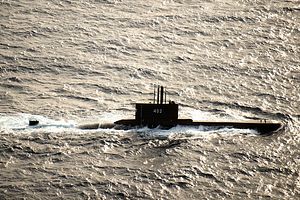This week, Indonesia and South Korea held another iteration of a key defense industry cooperation meeting. Though few specifics were officially released about the content of the deliberations, they nonetheless spoke to continued efforts to explore collaboration on this front within the defense realm despite the significant challenges that remain.
As I have noted before in these pages, Indonesia and South Korea have a relationship that dates back to 1973 and both sides continue to look for opportunities to further advance collaboration, with ties elevated to a special strategic partnership last year following South Korean President Moon Jae-in’s state visit to Indonesia. Bilateral ties include significant activity in the defense realm as well, with Indonesia being among the biggest importers of South Korean defense equipment and collaboration on projects to varying degrees, from submarines to the development of the new KF-X/IF-X fighter aircraft which has been running into some complications (See: “What’s Next for Indonesia-South Korea Military Ties?”).
Defense industry collaboration is among the key areas both sides have looked to make further inroads on within their defense ties, and it featured as part of Moon’s visit to Indonesia last year alongside other security items such as more consultation mechanisms and further collaboration in areas like counterterrorism and cybersecurity. One of the key defense engagements both sides hold in the defense industry domain is the Defense Industry Cooperation Committee (DICC), which was intended to be held annually between the Indonesian defense ministry and the South Korea’s Defense Acquisition Program Administration (DAPA).
This week, both sides held the 7th iteration of their DICC, which was held at the offices of the Indonesian defense ministry in Jakarta. The delegations were headed by the Director General of Defense Potential Bondan Tiara Sofyan and General Director of the Defense Industry Promotion Bureau of DAPA Kim Il Dong.
According to the Indonesian defense ministry, as expected, the meeting saw both sides take stock of ongoing defense industry cooperation as well as various opportunities to further increase collaboration. After two days of talks, consultations ended with the official signing of the meeting minutes, with both sides extolling the value of cooperation on this front.
Though few specifics were publicly disclosed about the actual content of the deliberations, the picture of defense industrial cooperation between the two sides continues to be much more complex than is advertised, whether it be in terms of the structural challenges that need to be overcome or how they manifest themselves in terms of specific projects.
On the KFX/IFX front, for example, collaboration there has been stymied by Indonesia’s assessment of the costs and benefits associated with the project. Reports have surfaced periodically about terms being renegotiated, and they did so again this week amid the DICC meeting with remarks from Brigadier General Totok Sugiharto, the official spokesman of the Indonesian defense ministry. Though the reports themselves were not new, they once again revealed the gap between sunny rhetoric and sober realities with respect to Indonesia-South Korea defense industry cooperation that still remain even as engagement continues.































